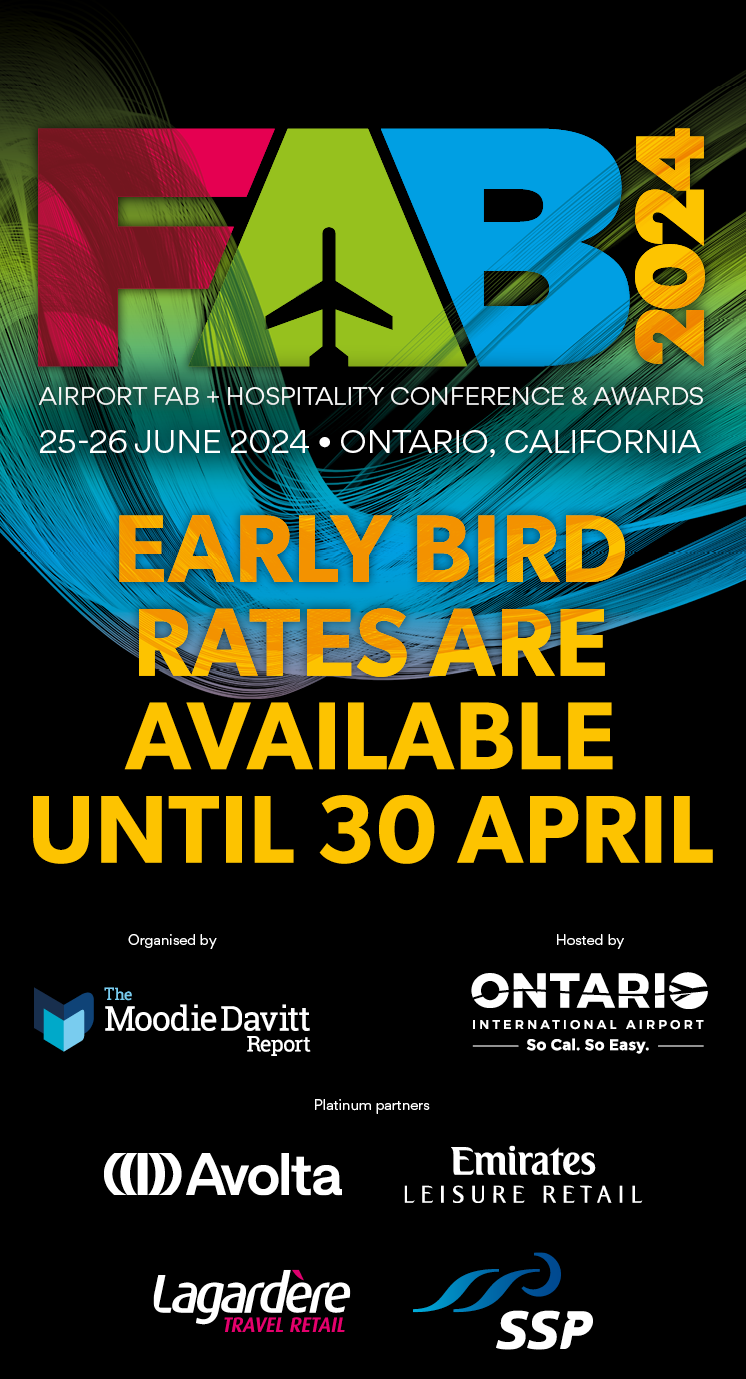MALAYSIA. Fast-growing low-cost airline AirAsia has revealed an ambitious expansion of its e-commerce activities. Plans include the creation of an online marketplace to sell duty free goods and other items.
In an extensive interview with Business Insider magazine in New York, AirAsia CEO Tony Fernandes said: “So when you book your ticket (online), we’ll offer you the chance to buy duty free and you can pick it up on the plane or at the airport. It gives our customers much more time to browse and potentially we can create a marketplace for shops to put content on our website.”
“If you take Amazon, they started with a website and great distribution, now they are buying planes. We’ve got the planes and we’re working backwards.” – AirAsia CEO Tony Fernandes
But AirAsia’s plans go far beyond merely an online pre-order system. Fernandes said he intends to use the airline’s fleet to fulfil a wide range of purchases, delivering them to various destinations throughout Asia, thereby creating a logistics business.
“If you take Amazon, they started with a website and great distribution, now they are buying planes,” Fernandes said. “We’ve got the planes and we’re working backwards.”
To facilitate these plans, AirAsia will be fitting its planes with high-speed WiFi.
Speaking separately at a press conference in Singapore last week [source: Web in Travel.com], Fernandes said the introduction of WiFi onboard would allow passengers to make all payments through the AirAsia app.
This payments system will complement AirAsia’s online duty free shop, Rokki.com, as the carrier attempts to become the “Amazon of the skies”, he said.

Accordingly, AirAsia has launched a new payment platform called BigPay. This will allow passengers to buy products through their smartphones. Fernandes told Business Insider that the platform is built with group travel in mind, allowing consumers to share bills and transfer money to one another.
The vision is to create an ecosystem that allows AirAsia to expand from pure aviation into other verticals such as payments and shopping, Fernandes explained.
Fernandes told Business Insider that the average passenger has between an hour and 90 minutes to shop at the airport. “With an e-commerce offer, AirAsia passengers can shop 365 days a year with personalised recommendations,” he noted.

He said that by embracing financial technology (fintech), AirAsia will avoid the problems of cash for its cabin crew. “We’re so excited about the fintech revolution,” Fernandes told the title. “We hate cash. It’s a pain for our cabin crew. FX is a super pain.”He also plans to include a currency exchange feature, noting, “We think our customers are being ripped off by banks.”
Ultimately, the AirAsia boss believes BigPay will be able to expand beyond the airline ecosystem and into mainstream retail.
“If we don’t start to embrace the future we will become irrelevant. We will end up with airports that have really good F&B, a few souvenir stores unique to the country, and that’s all.” – Richard Barker, General Manager Retail & Commercial, Auckland Airport
Comment: I remember vividly Tony Fernandes speaking at the TFWA Asia Pacific Gate One conference in Singapore several years ago, when he foresaw a relationship between buying in the sky and on-airport fulfilment, writes Martin Moodie. I asked him if he predicted partnerships between airlines and ground retailers. Not only did he foresee it but he planned it as a logical alliance between industry stakeholders. I noted that it was the most far-sighted and exciting initiative I had seen in travel retail and surely where the future of the business lay. At the time a colleague of mine was sitting elsewhere in the audience behind two leading trade association executives, who audibly scoffed at my suggestion.
No-one’s scoffing now as airlines and airports (think Auckland, Changi, Frankfurt, Heathrow) start to embrace the concept of becoming online marketplaces.
“For the longest time the travel retail industry thought e-commerce was not suitable for travelling consumers. But look at examples like Alibaba, which has proved you can sell almost anything – even cars – online.” – Kian Gould, Founder & CEO, AOE
At The Trinity Forum in Bangkok earlier this month, Auckland Airport General Manager Commercial & Retail Richard Barker said that the airport plans to
create a virtual mall for its existing partners. “We want to create a marketplace where our partners can reach customers beyond the physical environment.”

The scale of the investment, said Barker, is not about incremental revenue tomorrow, but looking further beyond. “In five years’ time, I want to be in the position where we have a viable business platform for duty free retailers to partner with us. It’s not just about creating resilience within our own business model, but also forming opportunities to grow.
“If we don’t start to embrace the future we will become irrelevant. We will end up with airports that have really good F&B, a few souvenir stores unique to the country, and that’s all. This is the prospect we face unless we learn to embrace and partner with the likes of Alibaba.”
“In the next five years, digitalisation will be part and parcel of the airport shopping experience. We need to bring the service to the customers.” – Changi Airport Group Airside Concessions Division, Online Retail General Manager Nicole Foo
AOE Founder & CEO Kian Gould said that the logical way for travel retail to adapt to the changing consumer world is for airports to become digital ecosystems.
To do that, they must partner with other service providers to create a marketplace of their own, he argued. “For the longest time the travel retail industry thought e-commerce was not suitable for travelling consumers,” Gould commented. “But look at examples like Alibaba, which has proved you can sell almost anything – even cars – online.”
Frankfurt Airport implemented AOE’s OM³ (Omnichannel Multi-Merchant Marketplace) suite at the end of 2015. Commenting, Fraport, Vice President E-Commerce Jens Paul said that this was a major step forward for the organisation in how it thought about the future.
Gould said that since the implementation of AOE’s OM³, Frankfurt Airport had seen cross-selling and up-selling opportunities increase +35%; loyalty programme
membership by +75%; and basket value by +300%. “These are the results when you create a multi-merchant marketplace where people can pay for all of their products in one transaction and have one delivery/pick up.”
Changi Airport Group Airside Concessions Division, Online Retail General Manager Nicole Foo noted: “In the next five years, digitalisation will be part and parcel of the airport shopping experience. We need to bring the service to the customers.”
She is right, of course. And if airports don’t, someone else will.













